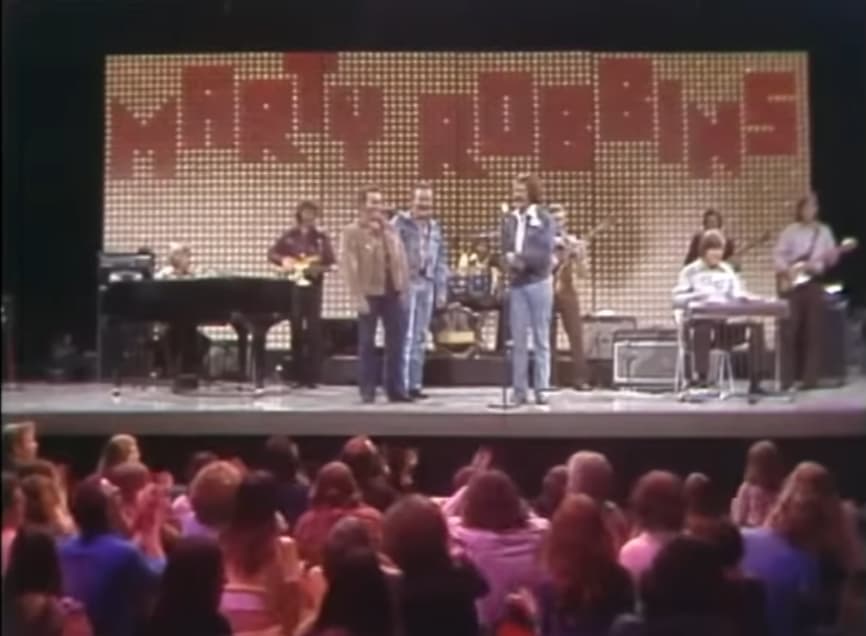
Marty Robbins – El Paso: A Tale of Love and Tragedy Under the Desert Sky
In the pantheon of classic country music, few songs resonate with such timeless allure as Marty Robbins’ “El Paso.” First immortalized on his 1959 album, Gunfighter Ballads and Trail Songs, this evocative ballad took on new life when performed on The Midnight Special on NBC, August 24, 1973. The song, by then already a staple of American music, was reintroduced to audiences with a fresh poignancy that only live performances can bestow.
Upon its original release, “El Paso” swiftly climbed the charts, reaching the pinnacle of success as it soared to number one on the Billboard Hot 100 in 1960. It was a triumph not only for Robbins but also for the genre itself, marking one of the rare occasions when a country song captured the imagination of a mainstream audience so completely. The song’s narrative depth and emotional resonance ensured its place in the hearts of listeners across generations.
At its core, “El Paso” is a story of unrequited love and fatalistic destiny, set against the backdrop of the rugged, romantic desert landscape. The protagonist, a young cowboy, becomes ensnared by his passion for a Mexican maiden named Felina, whose beauty is as enchanting as it is perilous. This tale of love is marked by impulsive decisions and inevitable tragedy, echoing the classic themes of star-crossed lovers found in literature and folklore.
The narrative unfolds with the cowboy’s recollection of his time spent in Rosa’s Cantina, where he first lays eyes on Felina. His love for her is immediate and all-consuming, yet it leads to a fateful confrontation with another suitor. In a moment of jealous rage, the protagonist takes the life of his rival, setting off a chain of events that culminates in his own demise. The haunting refrain of the song captures this sense of doomed romance, leaving listeners with a lingering sense of melancholy.
Marty Robbins, known for his rich storytelling and smooth, emotive vocals, infuses “El Paso” with a sense of authenticity and raw emotion. His ability to weave a narrative through song allows listeners to not only hear but also feel the cowboy’s longing and regret. It’s this profound connection that has cemented “El Paso” as a cornerstone of country music lore.
Performed live on The Midnight Special, the song took on an even deeper resonance. The 1973 performance showcased Robbins’ enduring talent and charisma, bringing the haunting story to life once more for an audience eager for nostalgia. For those watching, it was a moment to reminisce about the past, to remember where they were when they first heard the song, and to reflect on their own stories of love and loss.
In revisiting “El Paso,” listeners are transported back to a time when songs told stories that were both personal and universal. It’s a reminder of the power of music to capture the human experience, to evoke memories of days gone by, and to connect us all through shared emotion. For older generations, “El Paso” is more than just a song; it’s a cherished piece of their own history, a melody that echoes the timeless dance of love and fate beneath the vast desert sky.